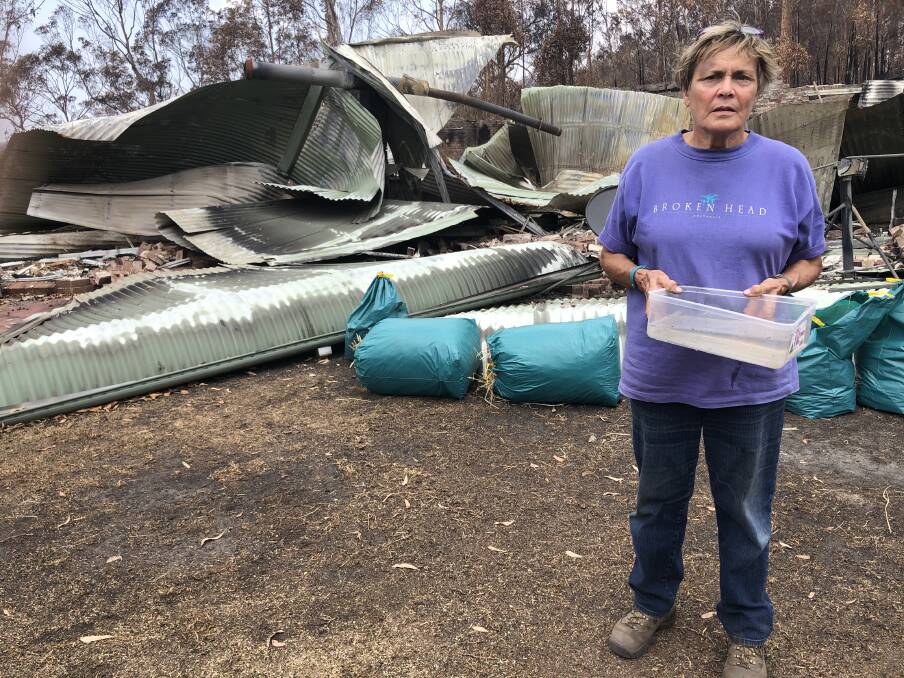
Karen Bachelder is a long way from the rain and cold of Seattle in the Pacific Northwest of the United States.
Subscribe now for unlimited access.
or signup to continue reading
She's been helping out at the Wild2free wildlife sanctuary at Runnyford near Mogo. A retired pyschologist, she's made a life doing wildlife volunteer work. She was on her fourth visit to Australia when the bushfire crisis hit.
She did some work at the sanctuary in October before heading to the Gold Coast.
"When I first came eveything was great and then I left and went to the Gold Coast and then it all started to fall apart," she said.
She didn't want the sanctuary owner Rae Harvey to be alone as the fire threatened and returned in December.
"Even then we didn't think we'd be in the middle of this. That was kind of a surprise," she says, recalling how she and Rae sought refuge down by the water as the fire engulfed the property.
The home in which Rae lived was completely destroyed in the blaze, as was the surrounding bush.
They have been making do in tents and a basic cabin that was scorched but otherwise spared. They have been putting food and water out for the kangaroos and wallabies that have made the sanctuary home. Many of the animals survived the blaze but were burnt traversing the superheated ground immediately after it.
Karen is surprised by the attention the plight of wildlife has been receiving at home in the US.
"All my friends in the US keep telling me there's so much coverage. People are wanting to know what they do to help," she said. .
"It's crisis proportions for your wildlife all along this east coast Even the ones that survive, where are they going to go? There's going to be no forest left."
She said wildlife volunteering was in her blood.
"The first place I went for in-depth animal volunteering was in Africa with chimpanzees - I've spent a total of four years there.
"It's the fourth time I've been to Australia. I was up near Darwin and helped at a kangaroo sanctuary up there and then with the flying foxes. I love the bats, the big fruit bats, but hey're just dropping their babies like crazy because of the drought."
Read more:

